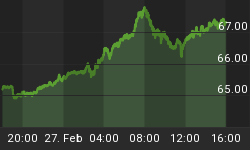Excerpted From The Money Bubble: What To Do Before It Pops by James Turk and John Rubino
In a very real sense, it is fractional reserve banking and not money itself that is the root of so many of today's evils. Whenever fractional reserves are permitted, the banking system - including the one that exists today throughout the world - comes to resemble a classic Ponzi scheme which can only function as long as most people don't try to get at their money.
A Better System
Now, is this critique of the current monetary system just impotent ideological whining over something that, like the weather, can't be changed? Or could fractional reserve banking and the resulting need for economic central planning actually be replaced by something better? Specifically, how could a banking system without fractional reserve lending accommodate depositors' demand that their money be there when they want it and borrowers' desire for 30-year mortgages which would tie up those deposits for decades? And could this market operate without the need for government oversight and management?
The answer to that last question is yes. A better financial system is possible, and here's how it would work:
First, today's commercial banks would split into two types. "Banks of commerce" would take deposits and keep them safe for a fee, like the goldsmiths of old. "Banks of credit" would pay interest on deposits and lend out depositor money, but would have to match the duration of deposits with the duration of loans. Deposits that can be withdrawn anytime (a checking account for instance) could only be used to fund a loan which the bank can "call" on demand, while longer-term deposits (say a 5-year CD) would be matched to longer-term loans like a business term loan or 5-year mortgage. Really long-term loans like 30-year mortgages would be funded with deposits for which the bank would have to pay up in order to convince a depositor to part with his or her money for such a long time.
The resulting mortgage would carry a high enough rate to provide the bank with a small profit, which would make 30-year mortgages both expensive and hard to get. But the case can be made that they should be hard to get. Buying a house - or anything else that requires capital for extremely long periods - should require a hefty down payment, other liquid assets as collateral and a solid income stream. This coverage would give the bank the ability to foreclose and realize more than the value of the loan, which would protect its ability to repay its depositors, thus making depositors more willing to tie up their money for long periods.
Such a society would be a lot less prone to excessive debt accumulation and inflation, bank runs would be far less frequent and government deposit insurance would be much less necessary. It would, in short, be a saner world in which individuals managed their own finances, saved with confidence and borrowed only for highly-productive uses, while two sharply-differentiated types of banks facilitated wealth protection and real wealth creation rather than paper trading.
Today's investment banks and hedge funds, meanwhile, would be set free to speculate with their investors' money to their hearts' content, making fortunes when they succeed and collapsing when they fail, with no public stake in either outcome. They would be seen as high risk/high reward propositions and their customers and investors would participate with eyes wide open. No entity would be "too big to fail" because the banking system would be insulated from the vicissitudes of more volatile investment markets.
Central banks in such a 100-percent reserve world would either be completely unnecessary or serve a sharply-defined, very limited function of issuing paper currency 100-percent backed by gold/silver reserves and standing ready to exchange one for the other upon request. No need to be a lender of last resort because the banking system is sound and stable. No need to intervene in currency markets to fool citizens into treating valueless paper as a savings vehicle because paper, as a warehouse receipt for real assets, will have intrinsic value. Booms and busts would be fewer and less devastating, reducing the need for government programs in response. Debt levels would be miniscule by today's standards, and therefore easily serviced from profitable activities. This hypothetical world, in short, is more modest and far more sustainable. All in all, it's an attractive, completely feasible vision.















